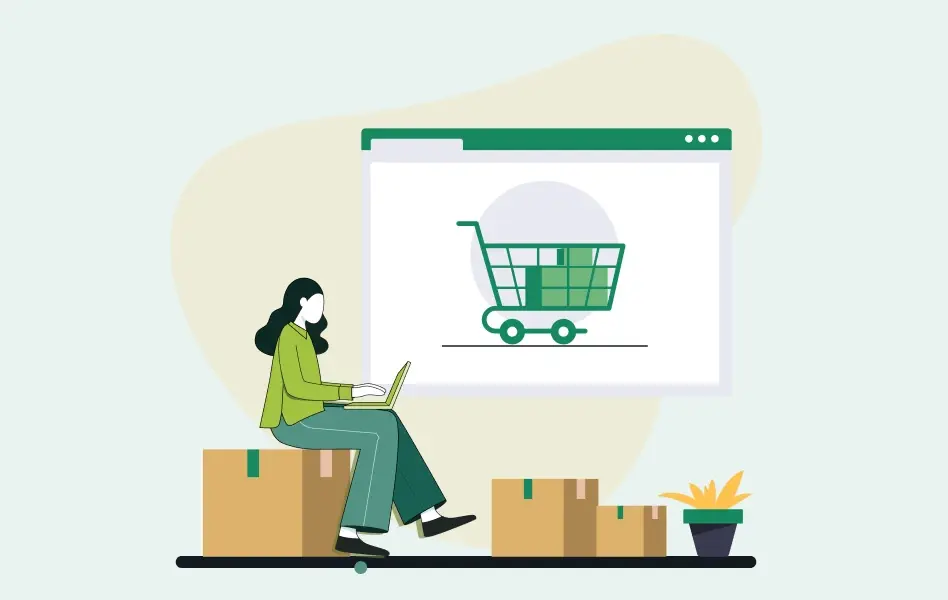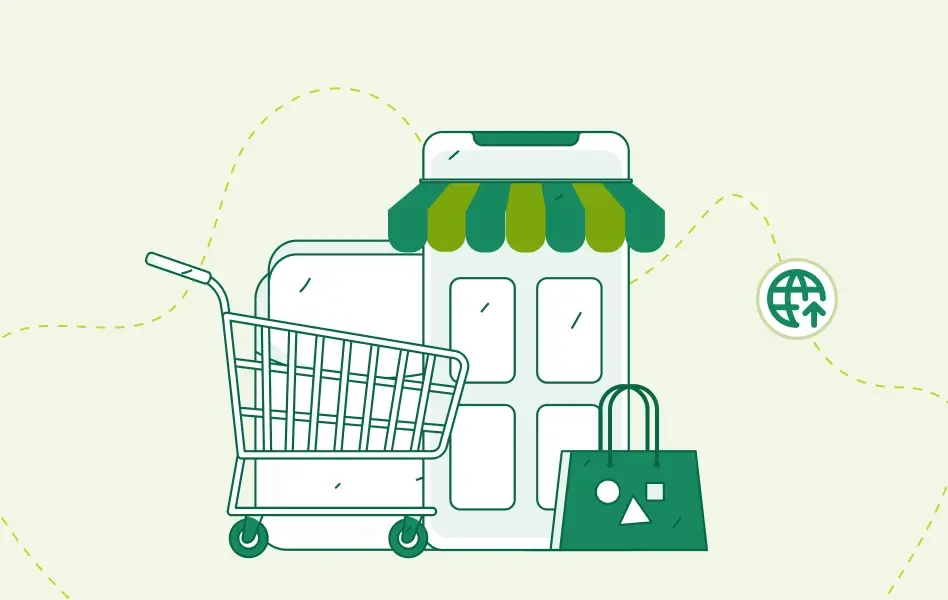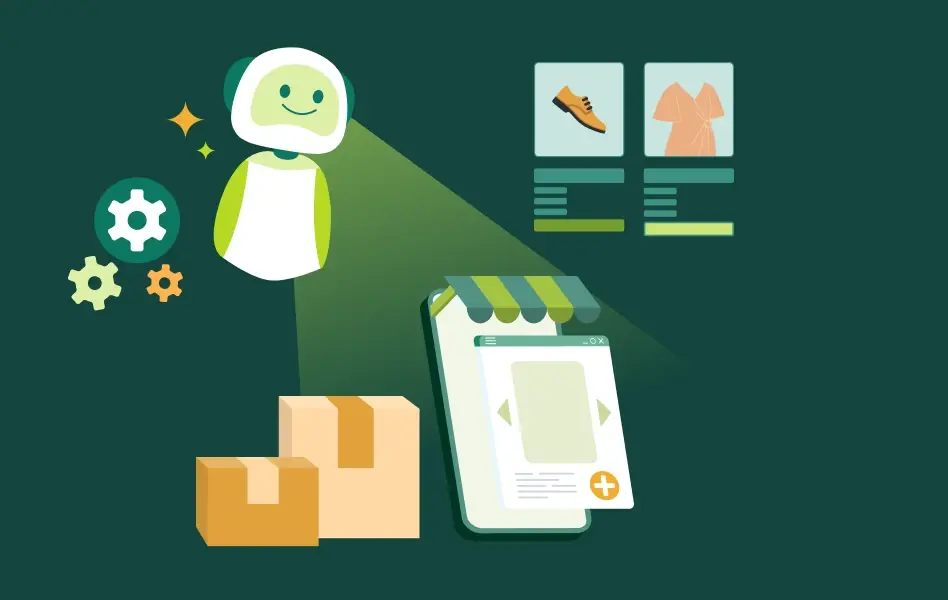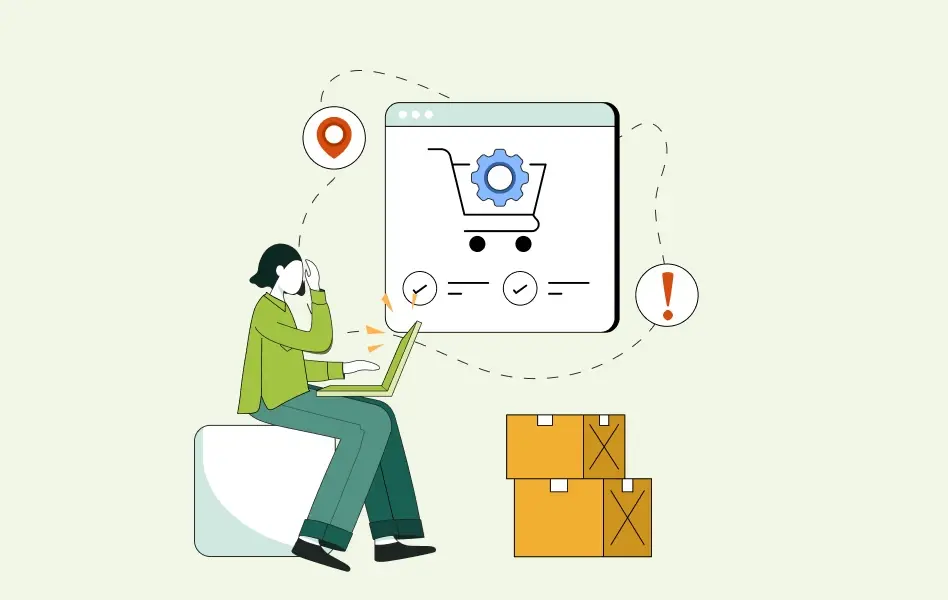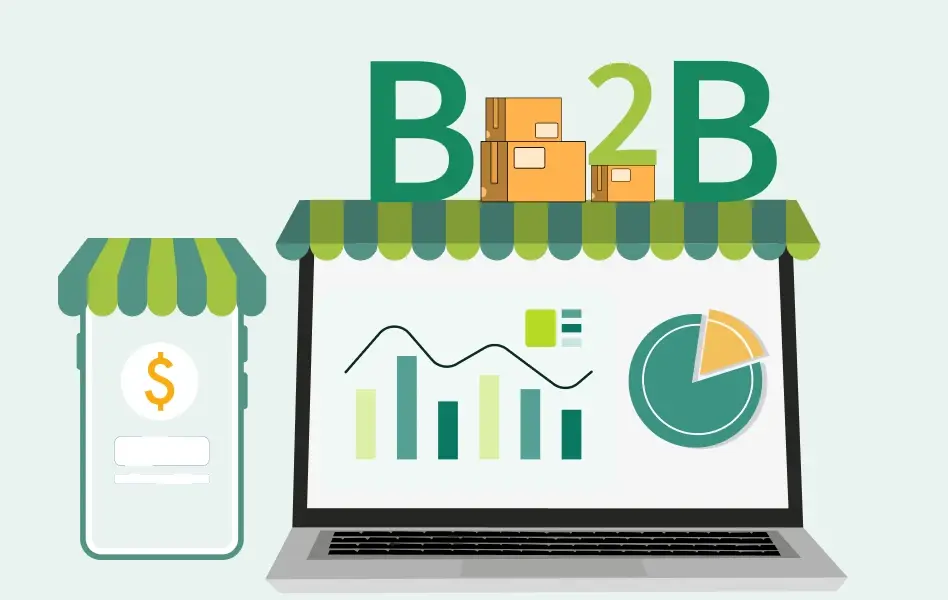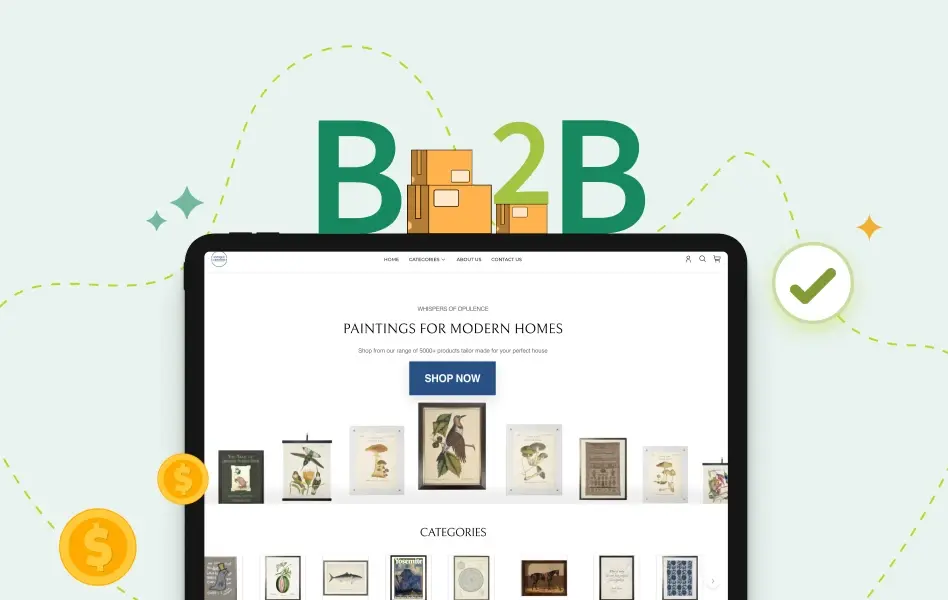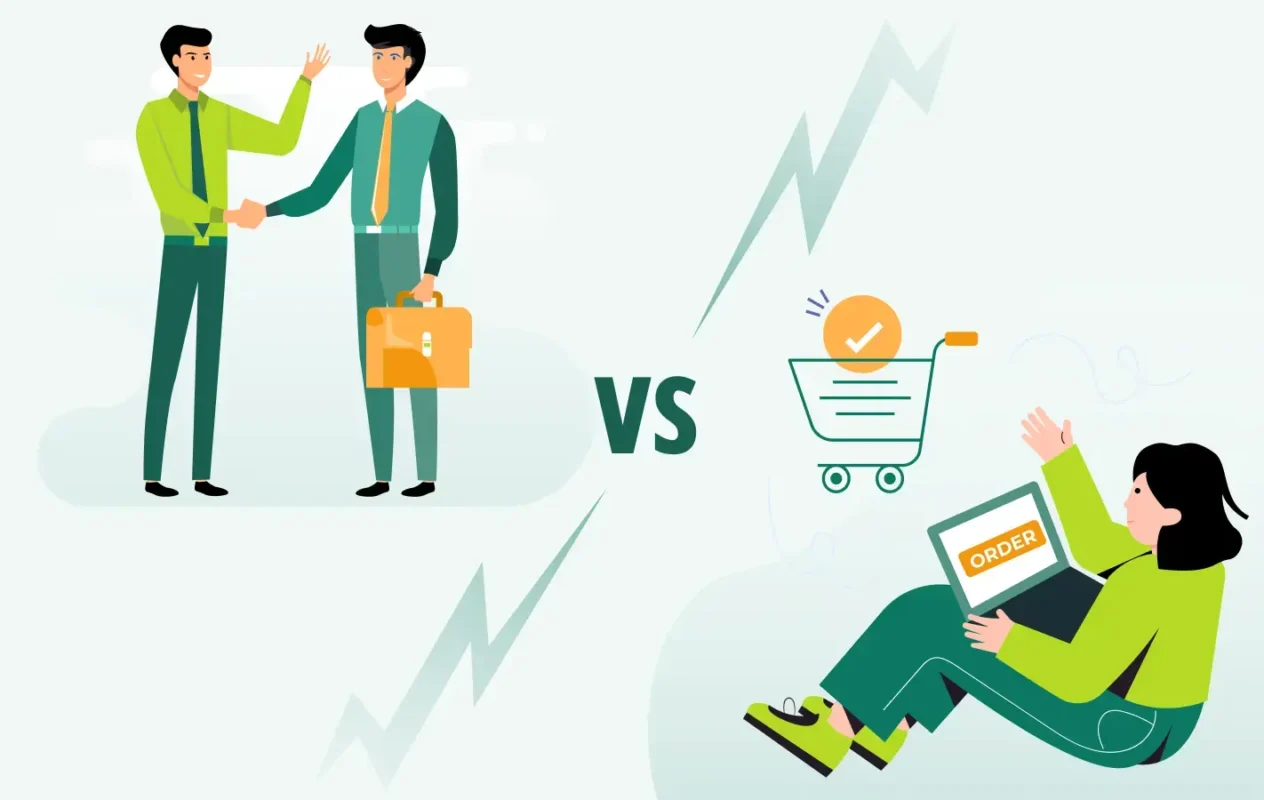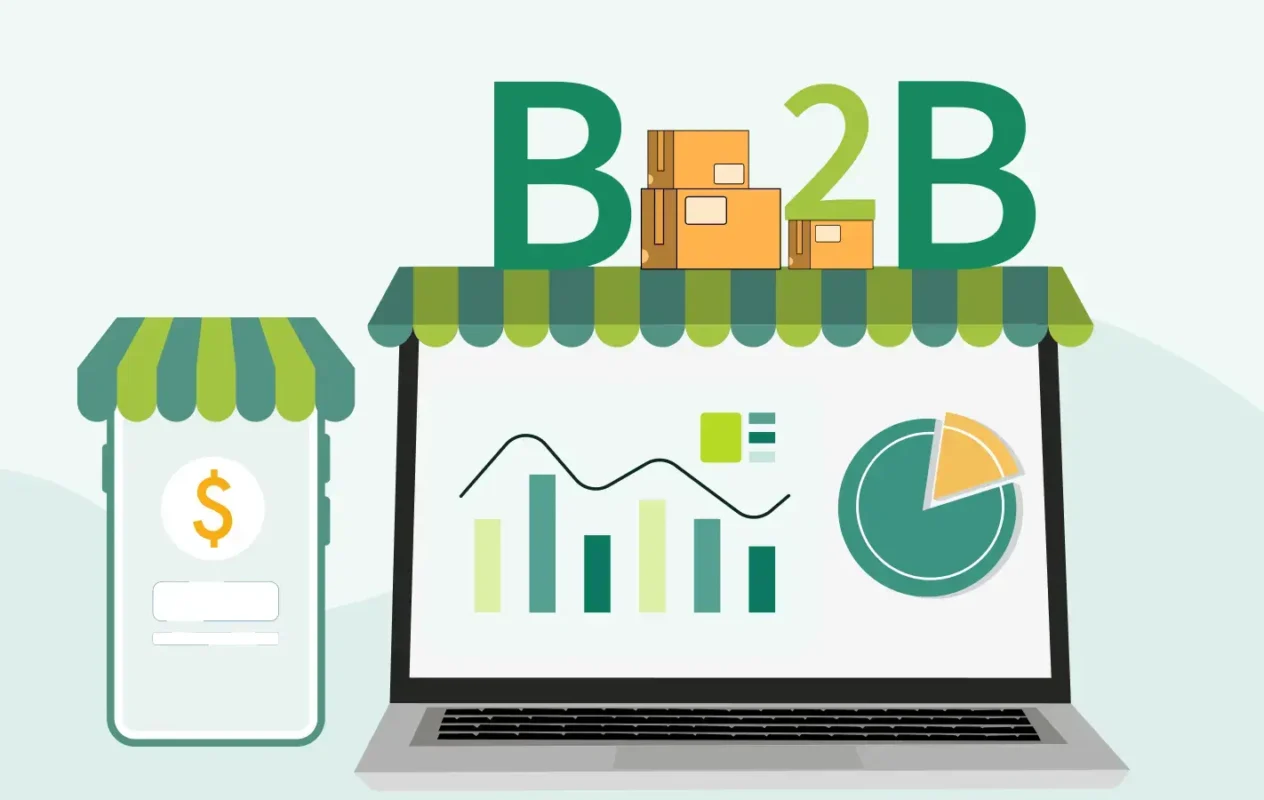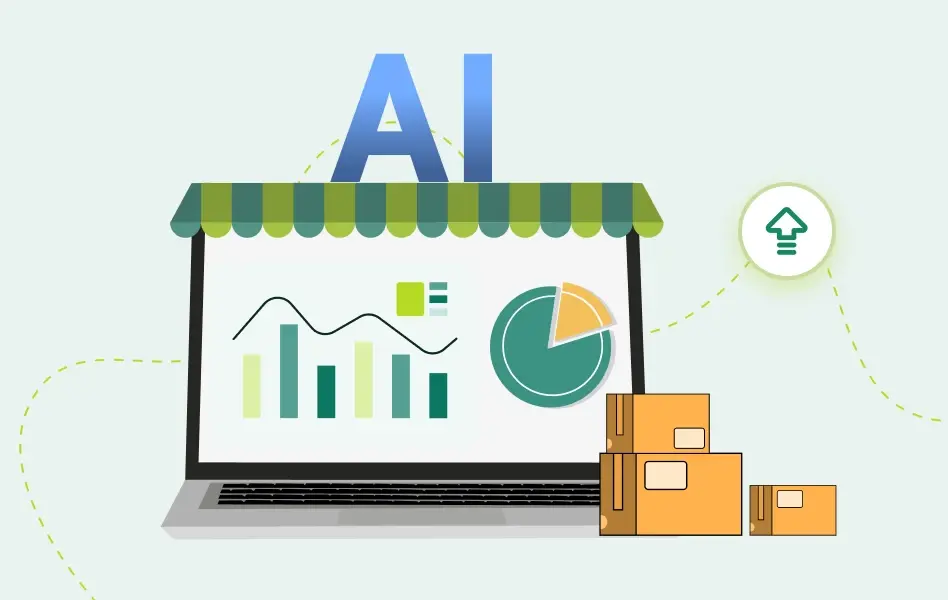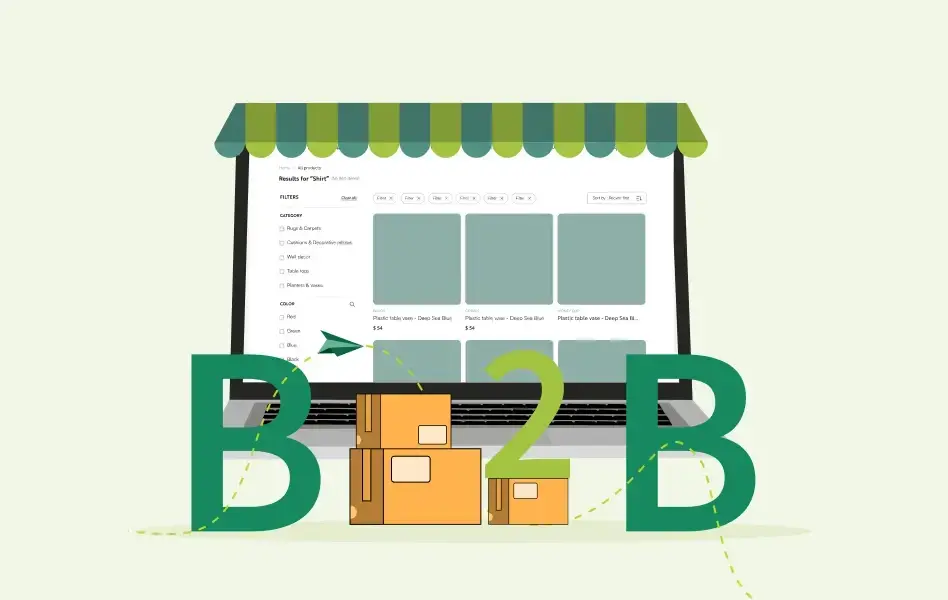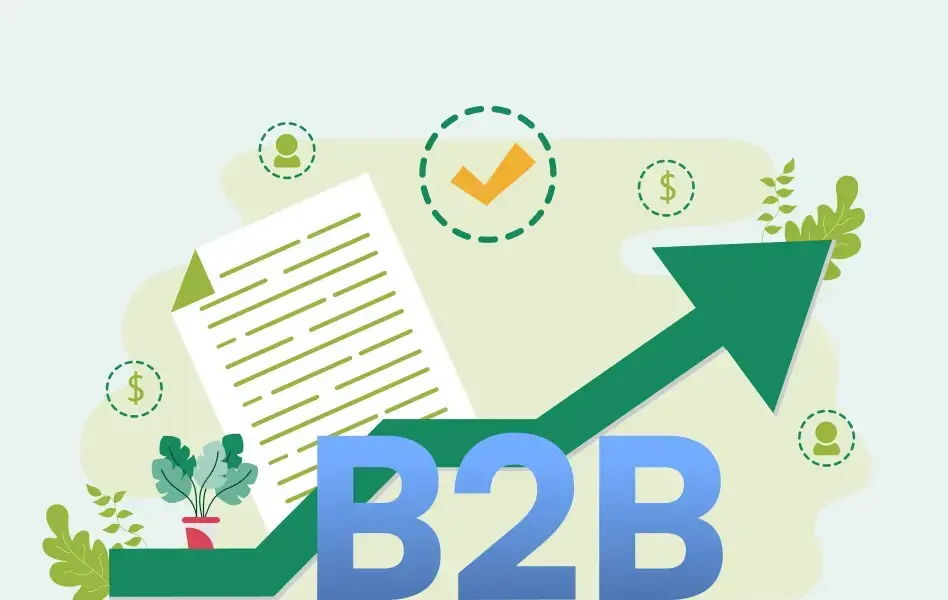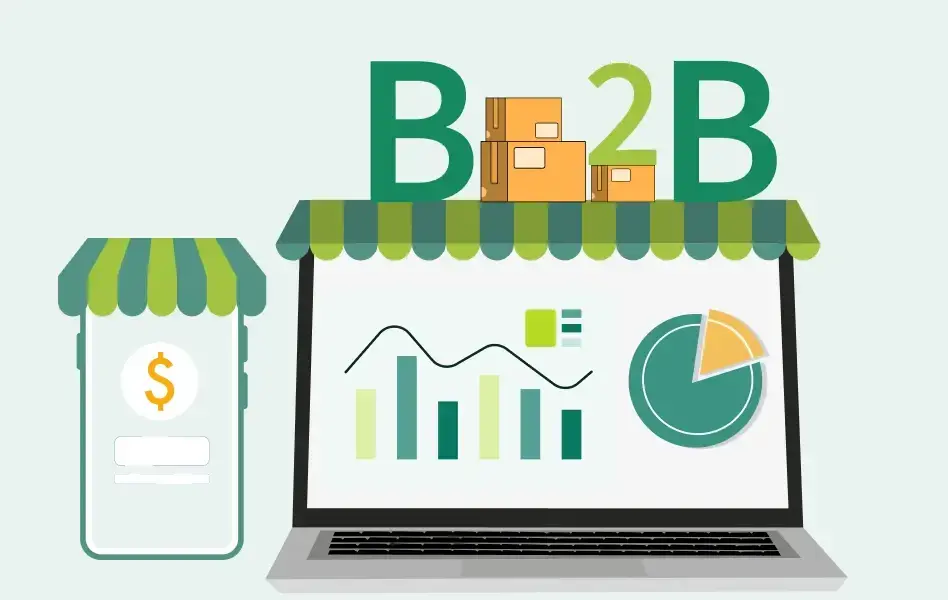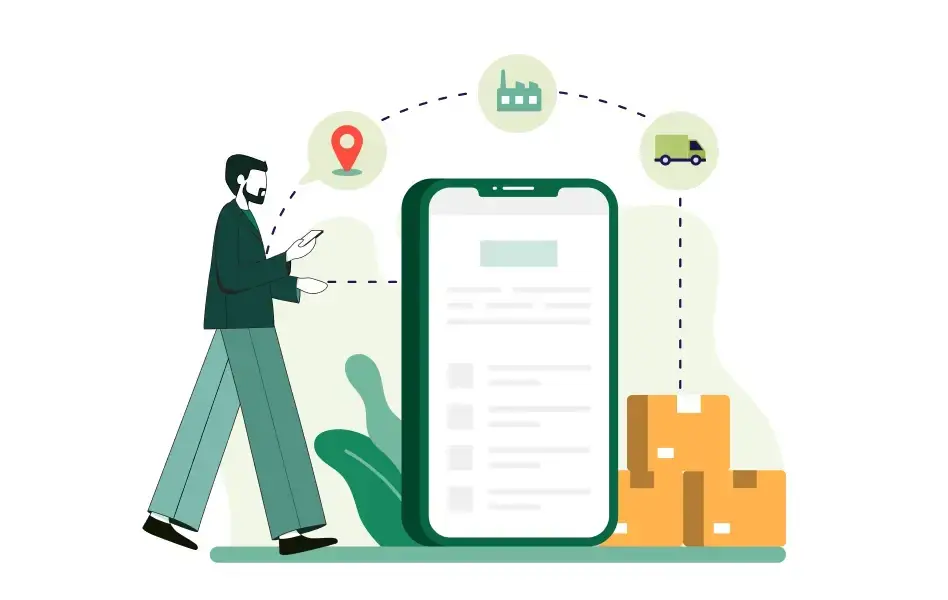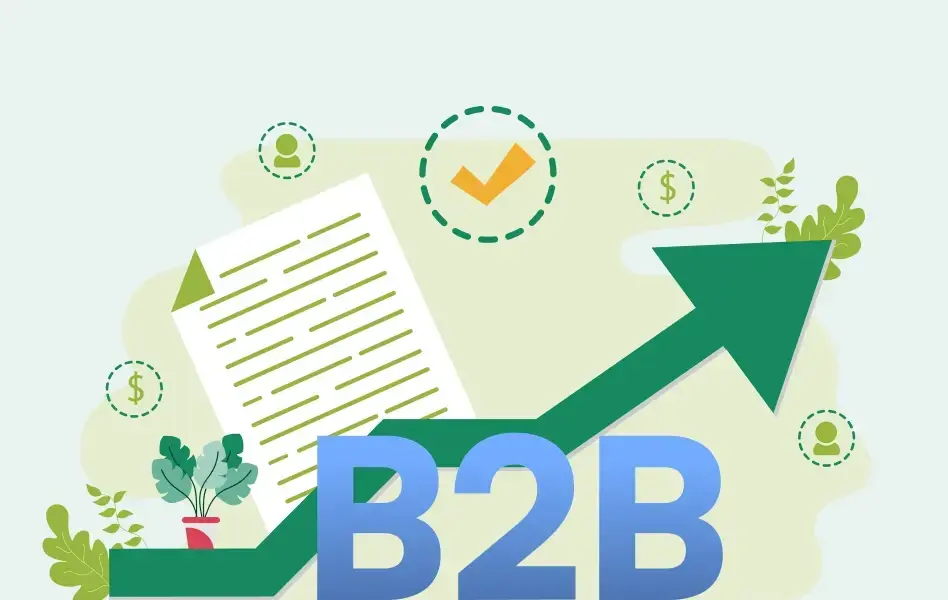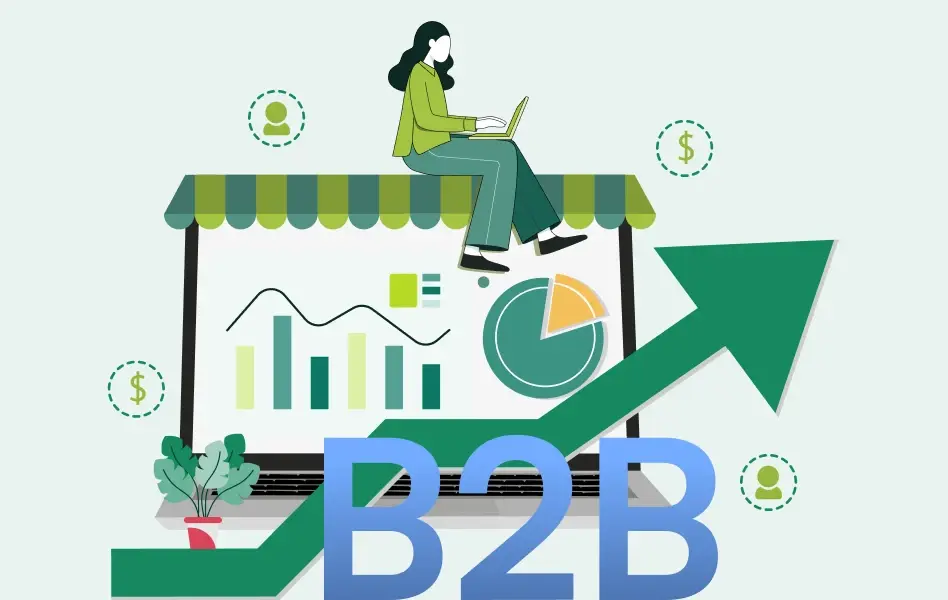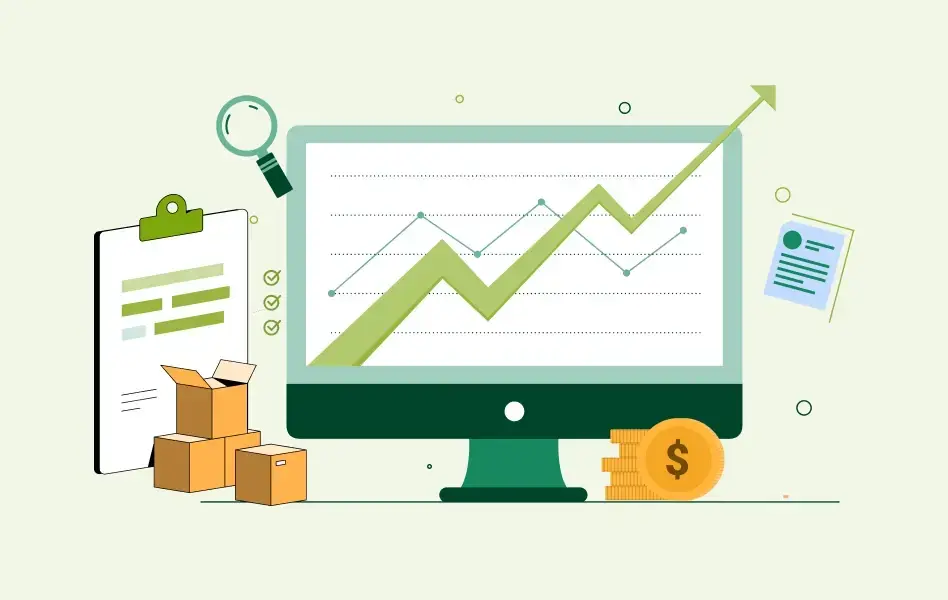Contents
- 1 Introduction to B2B E-commerce Platform for Food & Beverage Wholesale
- 2 Key Features of a B2B E-Commerce Platform for Food and Beverage Wholesale
- 3 Top 5 B2B E-commerce Platforms for Food & Beverage Wholesale
- 4 Benefits for Wholesalers
- 5 Benefits for Buyers
- 6 Implementation and Integration
- 7 Conclusion
Are you grappling with the complexities of supply chain management in the food and beverage industry?
As demands for a broader range of products and faster delivery times increase, traditional methods often fall short.
Wholesalers are critical to the food and beverage supply chain, bridging the gap between manufacturers and retailers. To meet the rising expectations for efficiency and quality, it’s crucial to leverage the right digital tools.
A B2B e-commerce platform specifically designed for food and beverage wholesale can revolutionize how transactions are managed – facilitating smoother interactions between manufacturers, wholesalers, and retailers.
In this article, we will explore the key features of these platforms and their benefits for both wholesalers and buyers.
Introduction to B2B E-commerce Platform for Food & Beverage Wholesale
The food and beverage wholesale industry is a vital component of the global supply chain, serving as a bridge between manufacturers and retailers. This expansive industry, valued at approximately $7.2 trillion globally in 2023, encompasses a diverse range of products from fresh produce and packaged foods to beverages and specialty ingredients.
Wholesalers play a critical role in ensuring that these products are distributed efficiently and reach consumers in optimal conditions.
In recent years, the F&B industry has faced significant challenges and opportunities. Increasing demand for diverse and high-quality food products, coupled with the need for rapid distribution and stringent safety standards, has pushed wholesalers to innovate and streamline their operations.
Additionally, the rise of digital technology and changing consumer behaviors have driven a shift towards more efficient, tech-enabled solutions to manage complex supply chains.
So, What’s a B2B E-Commerce Platform?
A B2B e-commerce platform for food and beverage wholesale is a digital solution designed to facilitate transactions between businesses, such as manufacturers, wholesalers, and retailers.
Unlike traditional B2C e-commerce platforms that focus on individual consumers, B2B platforms cater to the unique needs of business customers, offering functionalities that support bulk transactions, customized pricing, and complex logistics.
Key Features of a B2B E-Commerce Platform for Food and Beverage Wholesale
To understand how a B2B e-commerce platform can transform your food and beverage wholesale operations, let’s first delve into its core features and functionalities.
1. User-Friendly Interface
For food and beverage wholesalers, a B2B e-commerce platform must offer a user-friendly interface that allows for simple navigation and an enhanced user experience. This ensures that customers can efficiently locate and purchase their desired products, such as bulk ingredients or packaged beverages, without hassle.
Key aspects include an intuitive layout, clear categorization of food and beverage items, and a streamlined checkout process.
2. Advanced Search and Filtering Options
Given the variety of products in the food and beverage sector, advanced search and filtering capabilities are crucial. These features should enable users to swiftly find specific items based on criteria like type (e.g., organic, gluten-free), price range, brand, or packaging size. Efficient search tools are particularly valuable for businesses looking to place large, specific orders, enhancing the purchasing experience.
3. Bulk Ordering Capabilities
Bulk ordering is central to the food and beverage wholesale industry. A competent B2B e-commerce platform should support easy bulk purchases, allowing customers to order large quantities effortlessly. Features such as quantity discounts, bulk order templates, and convenient reordering options are essential for facilitating substantial orders and promoting frequent, large-scale purchasing.
4. Integration with Inventory and Supply Chain Management
Effective integration with inventory and supply chain management systems is vital for a seamless operation. This integration helps ensure real-time updates on food stock levels and accurate order processing, crucial for perishable items. Linking the e-commerce platform with existing logistical tools allows businesses to optimize supply chain operations, minimize errors, and enhance delivery efficiency.
5. Secure Payment Processing
In B2B transactions, particularly in the food and beverage industry, security is of utmost importance. The platform must provide secure payment processing options to safeguard sensitive financial data. Implementing encrypted payment gateways, multi-factor authentication, and adherence to payment industry standards (e.g., PCI DSS) is essential to maintain trust and protect transactions.
Top 5 B2B E-commerce Platforms for Food & Beverage Wholesale
Equipped with an understanding of the essentials, it’s time to explore the top B2B e-commerce platforms tailored specifically for the food and beverage wholesale industry.
1. WizCommerce
WizCommerce is a cutting-edge B2B e-commerce platform tailored for the food and beverage wholesale industry. Its sophisticated tools and features cater to the specific needs of wholesalers, ensuring smooth operations and enhanced sales processes.
Key Features:
- 24/7 Accessibility: Allows customers to shop anytime, removing traditional business hour constraints and expanding global access.
- Infinite Customization and Product Discovery: Offers extensive customization for pricing and terms, along with advanced search and filtering tools to manage complex product lines easily.
- Seamless Integration and Quick Re-order: Integrates smoothly with ERPs for real-time data synchronization and supports quick re-order functionality to enhance buyer convenience.
- Personalized Recommendations and Flexible Checkout: Features AI-driven recommendations and a flexible checkout process that includes multiple billing and shipping options.
- Customer Account Management: Provides a self-service portal where customers can access order histories, track statuses, and receive automated updates, reducing the need for manual customer service.
2. TrueCommerce
TrueCommerce offers a comprehensive e-commerce solution that supports seamless business transactions and efficient supply chain management for the food and beverage wholesale industry.
Key Features:
- Provides a fully integrated solution that connects with existing supply chain systems to streamline operations from order to delivery.
- Facilitates efficient order processing, inventory management, and real-time tracking of shipments.
- Offers tailored Electronic Data Interchange (EDI) solutions that enhance data accuracy and reduce manual entry errors.
- Adapts to the growing needs of businesses, allowing them to scale their operations without compromising performance.
3. Pepperi
Pepperi is a versatile B2B e-commerce platform designed to meet the dynamic needs of food and beverage wholesalers, providing a unified solution for sales force automation and e-commerce.
Key Features:
- Integrates in-field sales activities with back-office operations to provide a seamless sales process.
- Ensures sales representatives can access and manage orders on the go, enhancing productivity and efficiency.
- Provides comprehensive sales data and analytics to help businesses make informed decisions and optimize their sales strategies.
- Allows businesses to create and manage customized product catalogs that cater to different customer segments and preferences.
4. Zoey
Zoey is a robust e-commerce platform that offers advanced B2B functionalities, making it ideal for food and beverage wholesalers looking to enhance their online sales operations.
Key Features:
- Includes features like customer-specific pricing, bulk ordering, and quote management to meet the unique needs of B2B transactions.
- Offers an intuitive interface that simplifies the process of managing products, orders, and customer interactions.
- Seamlessly integrates with various CRM, ERP, and other business systems to ensure smooth data flow and operational efficiency.
- Ensures the platform is accessible and functional across all devices, providing a consistent user experience.
5. B2B Wave
B2B Wave is an e-commerce platform specifically designed for wholesalers, manufacturers, and distributors, providing a comprehensive solution for managing B2B sales.
Key Features:
- Simplifies the process of adding and managing products, including bulk uploads and detailed product descriptions.
- Offers a dedicated portal where customers can view products, place orders, and track their purchases.
- Provides advanced order management features that streamline the ordering process and ensure timely delivery.
- Delivers in-depth sales reports and analytics to help businesses understand their performance and make data-driven decisions.
Benefits for Wholesalers
Now that we’ve identified some of the leading platforms, let’s examine the distinct benefits these platforms offer to wholesalers.
1. Increased Reach and Market Penetration
A B2B e-commerce platform allows wholesalers to extend their reach beyond local markets, enabling them to tap into a global customer base.
For example, consider Sysco, a major distributor in the food and beverage industry. By leveraging B2B e-commerce solutions, Sysco has been able to efficiently manage a vast network of suppliers and customers, including those in international markets.
This digital approach has enabled Sysco to expand significantly, offering their extensive catalog of products to buyers across different continents without establishing a physical presence in each region. Moreover, the increased market penetration has not only boosted Sysco’s sales volumes but also opened up numerous opportunities for business growth and diversification.
By using B2B e-commerce platforms, wholesalers like Sysco can achieve a wider distribution of their products and access new and emerging markets with ease.
2. Streamlined Ordering Process
B2B e-commerce platforms streamline the ordering process by providing an intuitive interface where customers can place orders quickly and efficiently. Automated order management reduces the administrative burden on wholesalers.
For example, consider United Natural Foods, Inc. (UNFI), a major distributor in the food and beverage sector, has effectively harnessed the power of its B2B e-commerce platform to simplify the ordering process for its customers. The platform enables buyers to easily browse through a comprehensive catalog of natural, organic, and specialty foods. Features like advanced filtering, quick search capabilities, and personalized recommendations ensure that customers can find and order products effortlessly.
Furthermore, the automated order management system at UNFI updates inventory in real-time, processes orders automatically, and tracks shipping and delivery, which significantly reduces the time and effort needed to manage orders manually.
This level of automation and user-friendly design not only enhances customer satisfaction but also significantly boosts operational efficiency, allowing UNFI to manage large volumes of orders with precision and minimal administrative overhead.
3. Real-Time Inventory Updates
Integration with inventory management systems ensures that inventory levels are updated in real-time. For example, a wholesale supplier of perishable goods can provide accurate stock levels to buyers, helping prevent stockouts and overstock situations.
This accuracy improves inventory turnover and customer satisfaction, as buyers can trust that the products they order are available and will be delivered on time.
4. Enhanced Customer Relationship Management
B2B e-commerce platforms often come with CRM capabilities that help wholesalers manage customer relationships more effectively.
For example, a wholesaler can use CRM features to track customer order history, send personalized communication, and launch tailored marketing campaigns. These capabilities enhance customer engagement and loyalty, as buyers feel valued and understood.
5. Detailed Sales Analytics and Reporting
Advanced analytics and reporting tools provide wholesalers with insights into sales trends, customer behavior, and product performance. For instance, a food wholesaler can analyze sales data to identify which products are most popular among different customer segments, allowing them to optimize their inventory and marketing strategies.
These insights enable data-driven decision-making, helping wholesalers improve overall business performance.
Benefits for Buyers
While wholesalers gain substantial advantages, buyers also stand to benefit significantly from utilizing a B2B e-commerce platform.
1. Convenient 24/7 Ordering
The ability for buyers to place orders anytime, without being restricted by traditional business hours or the need to engage directly with customer service or sales teams, revolutionizes purchasing efficiency. This feature eliminates the typical back-and-forth communication that can delay urgent orders.
For example, a restaurant owner can order ingredients late at night after the restaurant closes, ensuring they have everything they need for the next day. This flexibility is particularly valuable for businesses operating across different time zones or with varying schedules.
2. Access to a Wider Range of Products
B2B e-commerce platforms typically offer a vast catalog of products, giving buyers access to a broader range of options.
For instance, a small grocery store can browse and purchase from a wide selection of specialty food products that may not be available through local distributors. This variety enables buyers to find the best products that meet their specific needs and preferences.
3. Customized Pricing and Promotions
Buyers can take advantage of customized pricing and promotions tailored to their purchasing history and order volume. For example, a large catering company might receive bulk discounts on frequently ordered items or exclusive promotions based on their loyalty and order frequency. Personalized offers and discounts enhance the buying experience and can lead to cost savings.
4. Efficient Order Tracking
With efficient order tracking features, buyers can monitor the status of their orders in real-time. For example, a retailer can track their delivery of seasonal products to ensure timely arrival before a big sales event.
This transparency helps reduce uncertainties and improves the overall purchasing experience, allowing buyers to plan their operations more effectively.
5. Improved Communication with Suppliers
B2B e-commerce platforms facilitate better communication between buyers and suppliers. Features such as messaging systems, automated notifications, and order updates ensure that buyers are always informed and can quickly address any issues that arise.
For instance, if a shipment is delayed, the buyer can receive instant notifications and communicate directly with the supplier to find a solution.
Implementation and Integration
Implementing these platforms effectively requires careful planning and integration with existing systems. Let’s look at how to do this seamlessly.
Steps to Launch the Platform
1. Needs Assessment and Planning
Begin by assessing your business needs, setting clear objectives for the e-commerce platform, and identifying key features required for your operations. This step includes:
- Identifying target users and their needs: Understand the specific requirements of your wholesale food and beverage buyers, including product variety, pricing, and order volume.
- Setting holistic goals: Define clear, actionable goals for your platform. Instead of choosing between improving sales, customer engagement, or operational efficiency, aim to enhance all these areas comprehensively. Success should be seen as a multi-faceted concept where increases in sales, customer satisfaction, and streamlined operations coexist and reinforce one another.
- Choosing the right platform type: Decide whether building a custom B2B e-commerce platform, utilizing a B2C software solution like Shopify, or adopting a specialized B2B e-commerce software like WizCommerce best suits your business model.
- Budgeting for development, maintenance, and marketing: Allocate resources effectively to cover all aspects of launching and maintaining the platform, from initial development to ongoing marketing efforts.
2. Platform Selection
Choose a suitable e-commerce platform that meets your requirements. Consider platforms like Shopify Plus, Magento, or custom-built solutions depending on your business scale and specific needs. Evaluate each platform’s capabilities in handling bulk orders, integrating with existing systems, and supporting industry-specific needs.
3. Design and Development
Work with designers and developers to create a user-friendly interface that aligns with your brand. This stage involves:
- Customizing templates and themes: Ensure the design is intuitive and visually appealing to your users.
- Developing necessary integrations (ERP, CRM, payment gateways): Integrate the platform with essential backend systems to streamline operations.
- Ensuring mobile responsiveness and accessibility: Make sure the platform is accessible on various devices to cater to all users.
4. Data Migration
Transfer existing data, including product catalogs, customer information, and past orders, into the new system. Ensure data accuracy and integrity during this process to avoid disruptions in operations.
5. Testing
Conduct comprehensive testing to identify and fix any issues. Testing should cover:
- Functionality and user experience: Ensure the platform works smoothly for end-users.
- Integration with other systems: Verify that all integrations function as expected.
- Security and compliance checks: Ensure the platform meets all regulatory requirements and protects user data.
6. Launch
Go live with the platform, initially with a soft launch to a small group of users for feedback before a full-scale rollout. Use the feedback to make necessary adjustments before a wider release.
Integration with Existing Systems (ERP, CRM)
1. ERP Integration
Integrate the e-commerce platform with your ERP system to streamline inventory management, order processing, and financial reporting. Benefits include:
- Real-time inventory updates: Keep inventory levels accurate and up-to-date across all sales channels.
- Automated order processing and fulfillment: Speed up the fulfillment process by automatically processing orders through the ERP system.
- Accurate financial data synchronization: Ensure financial records are consistently updated for accurate reporting and analysis.
2. CRM Integration
Integrating with CRM systems helps manage customer relationships and sales processes. Advantages include:
- Centralized customer data management: Maintain a single source of truth for all customer information.
- Enhanced customer service through better data access: Provide sales and support teams with comprehensive customer profiles for more personalized interactions.
- Improved marketing and sales alignment: Coordinate efforts between marketing and sales teams to enhance lead generation and conversion.
3. API and Middleware Solutions
Use APIs and middleware to facilitate seamless integration between the e-commerce platform and existing systems. These tools help in:
- Automating data transfer: Reduce manual data entry and the associated risk of errors.
- Ensuring data consistency and accuracy: Keep information consistent across all systems.
- Reducing manual entry and associated errors: Improve operational efficiency by minimizing repetitive tasks.
Discover how WizCommerce, the leading AI-powered B2B commerce platform in the US, can revolutionize your food and beverage wholesale operations. While WizCommerce has experience across various industries, it offers tailored solutions specifically designed to address the unique needs of food and beverage wholesalers.
It addresses common challenges like:
- Getting started with B2B e commerce.
- Eliminating manual sales process/order writing.
- Payment processing.
- Data-driven decision-making.
Training and Support for Users
1. Comprehensive Training Programs
Develop training programs tailored to different user groups, such as sales teams, customer service, and IT staff. Training methods include:
- Live training sessions and webinars: Provide interactive sessions to explain the platform’s features and functionalities.
- Interactive tutorials and e-learning modules: Offer self-paced learning options for users to explore the platform at their convenience.
- User manuals and documentation: Supply detailed guides and reference materials for ongoing support.
2. Ongoing Support
Provide continuous support to ensure smooth operation and user satisfaction. Support options can include:
- Dedicated helpdesk and support tickets: Offer a channel for users to report issues and get timely assistance.
- Regular system updates and maintenance: Keep the platform updated with the latest features and security patches.
- User forums and community support groups: Create a community where users can share tips, ask questions, and get help from peers.
Conclusion
The adoption of a B2B e-commerce platform can revolutionize the operations of food and beverage wholesalers, enhancing efficiency and expanding market reach.
For businesses seeking to streamline their sales processes and overcome common challenges, WizCommerce is a B2B commerce platform tailored to the needs of wholesalers, manufacturers, distributors, and importers. Specializing in design-led products such as home textiles, decor, food and beverage, furniture, and lighting, WizCommerce addresses inefficiencies in manual order processing, data-driven decision-making, and communication hurdles.
Contact us today to transform your sales operations and achieve your business objectives.










